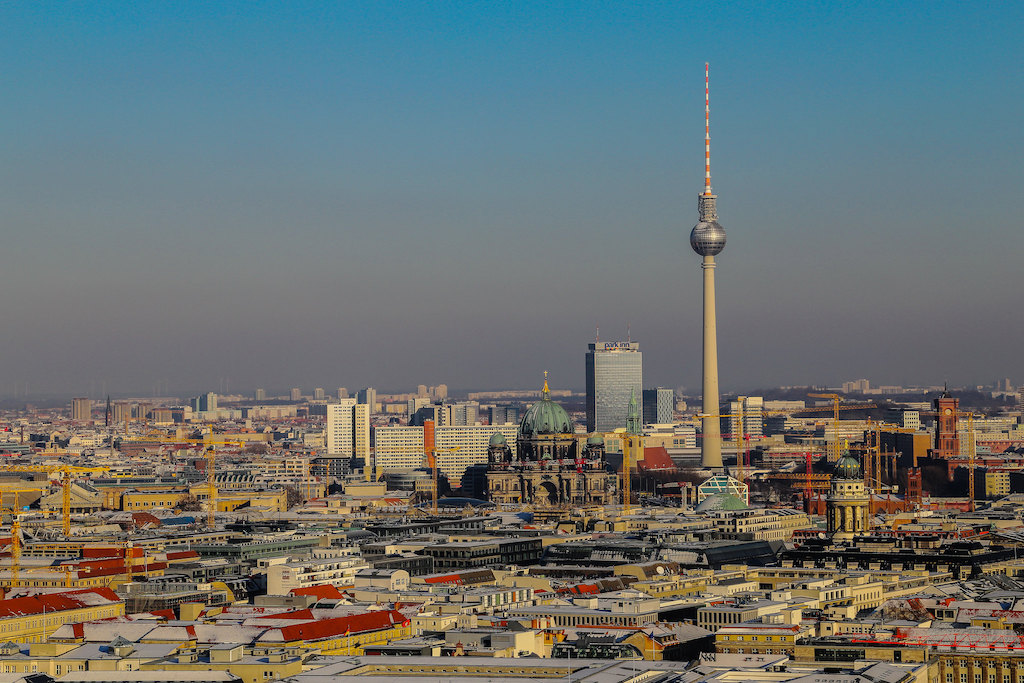German green district heating scheme approved by EU Commission
The EU Commission has approved a funding scheme for green district heating development in Germany which is open to projects tapping deep and shallow geothermal energy sources as well.
The European Commission has approved, under EU State aid rules, a EUR 2.98 billion German scheme to promote green district heating based on renewable energy and waste heat. The measure will contribute to the implementation of Germany‘s National Energy and Climate Plan and to the EU’s strategic objectives relating to the EU Green Deal, in particular the EU’s 2050 climate neutrality target.
Executive Vice-President Margrethe Vestager, in charge of competition policy, said: “This EUR2.98 billion scheme will contribute to greening the district heating sector in Germany, by supporting the construction of more efficient district heating systems and the decarbonisation of existing ones. With this measure, Germany will be able to increase the share of renewable energy and waste heat in the heating sector, thereby considerably decreasing its emissions. The German aid measure we have approved today will contribute to achieving the EU Green Deal objectives and help Germany meet its environmental targets, while limiting possible distortions of competition.”
The German scheme
In June 2022, Germany notified the Commission of its intention to introduce a scheme to promote green district heating based on renewable and waste heat.
The scheme, which will run until 30 August 2028, will be open to district heating network operators and operators not currently providing this service on the market. The aid will take the form of direct grants. The measure will support feasibility studies and transformation plans respectively for the construction and the decarbonisation of district heating networks. Under the scheme, district heating network operators will also be able to receive investment aid for:
- the construction of new district heating systems with a share of renewable and waste heat of at least 75%;
- the decarbonisation and upgrade of existing district heating systems to operate on the basis of renewable energy and waste heat; and
- the installation of renewable heat and solar thermal generation facilities, heat pumps and heat reservoirs, as well as the integration of waste heat in district heating systems.
In addition, district heating network operators will be able to receive operating aid for the generation of renewable heat through solar thermal installations and heat pumps.
Support for feasibility studies and transformation plans will cover up to 50% of their costs. When it comes to investment aid, the aid amount per beneficiary will cover up to 40% of the eligible investment costs. In the case of operating aid, the aid will be calculated based on the amount of renewable heat produced. The granting authority will ensure that the aid does not exceed the funding gap (i.e. the aid amount necessary to attract the investments that otherwise would not take place).
This nation-wide scheme is expected to support the installation of approximately 681 MW of renewable heat generation capacity per year, reducing greenhouse gas emissions by approximately 4 million tonnes of CO2 per year.
The investment cost subsidy amounts to a maximum of 40% of the investments in generation plants and infrastructure. Funding objects include systems for providing heat from renewable energies (deep geothermal energy, solar thermal energy, large heat pumps for using environmental heat, biomass), the integration of unavoidable waste heat, and infrastructure measures for heat distribution and optimization of network operation.
For heat generation from electricity-based heat pumps and solar thermal systems, an operating cost subsidy is also granted over a period of 10 years. For individual measures that can be implemented quickly, i.e. solar thermal systems, heat pumps, biomass boilers, heat storage tanks, pipelines and heat transfer stations, investment cost support can also be applied for according to simplified requirements, so no feasibility study or transformation plan is required.
A total of around EUR3 billion is available until 2026. After the funding guideline has come into force, applications can be submitted to the Federal Office of Economics and Export Control (BAFA). Funding is scheduled to start in mid-September.
Source: EU Commission, BVG


















